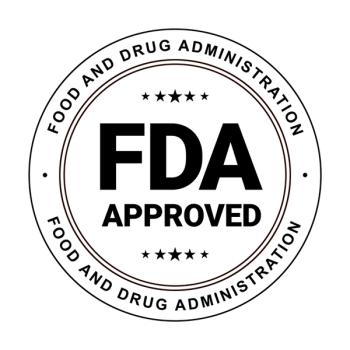
Cardiovascular
Latest News

Latest Videos

CME Content
More News

Implementing artificial intelligence (AI) has transformed clinicians' and health systems' ability to screen for and distinguish forms of cardiorenalmetabolic disease.

Jaime Murillo, MD, discusses the importance of fostering open communication with patients as a means of encouraging adherence to various treatments.

Lipoprotein(a) [Lp(a)] plays a key role in assessing cardiovascular risk, making awareness efforts equally essential for prevention and early intervention.

Experts discuss the clinical and economic burden of atherosclerotic cardiovascular disease (ASCVD) and aortic stenosis in the US, exploring their impact on health care systems, the importance of prevention in reducing this burden, and the challenges of implementing preventive strategies, while considering the potential benefits of improved risk assessment and prevention in the ASCVD space.

Experts discuss atherosclerotic cardiovascular disease and aortic stenosis, as well as their burden, highlighting their prevalence, impact on patient health, and the growing need for effective management strategies.

In a recent decision, the FDA approved vutrisiran (amvuttra), making it the only approved therapy for adults with hereditary transthyretin-mediated amyloidosis (ATTR-CM) or wild-type cardiomyopathy.

The PROMPT trials evaluate the influence of electronic health alerts for informing appropriate, evidence-based therapies to patients with cardiovascular conditions.

Tom Belmont, president and CEO, Greater Philadelphia Business Coalition on Health (GPBCH) previews the upcoming employer symposia, which seeks to help employers navigate solutions for the management and prevention of cardiovascular and musculoskeletal disease.

Tirzepatide and Semaglutide Improve Weight Loss, Cardiovascular Conditions, but Deemed Too Expensive
Weight loss drugs like tirzepatide and semaglutide are growing in popularity and offer significant health benefits, but they are not cost-effective at their current prices, according to a new evaluation, placing economic burdens on patients with obesity in the US.

On December 10, 2024, cardiologists, researchers, and value-based care experts gathered in Dallas, Texas, to discuss best practices for implementing advances in cardiology care with a value-based mindset, spanning the care continuum from prevention to treatment.

Discussions at a recent Institute for Value-Based Medicine® event highlighted the interconnected nature of cardio-kidney-metabolic disease and emphasized the need for integrated, patient-centered care.

Cardiologists, primary care physicians, and value-based care leaders convened in Phoenix, Arizona, on November 12, 2024, to share case studies and insights on how to align cardiology with the principles of value-based care, including through the application of digital tools.

Advancing technologies have transformed the detection of heart disease and, in turn, streamlined medical processes and relieved burden on health care systems.

This systematic literature review and pooled rates analysis investigated the standard of care for patients with heart failure in the US post hospital discharge.

The 2025 guideline introduces notable updates including refined recommendations for dual antiplatelet therapy, cardiogenic shock management, and secondary prevention.

This multicenter study sheds more light on sex-based differences in aortic stenosis (AS) and argues the benefits of using cardiovascular magnetic resonance (CMR) to assess sex-based risks in AS.

Antoine Keller, MD, founded HeartSense with the purpose of uncovering and addressing the cardiovascular needs of rural, often underserved communities.

To maintain a healthy heart, researchers say people should focus on diet and exercise, limit alcohol, manage stress, get enough sleep, and more.

Results from the AZALEA-TIMI 71 phase 2 trial showed great promise for abelacimab to transform care for high-risk patients with atrial fibrillation.

Favorable bleeding outcomes related to abelacimab have positioned the medication as a potential game changer in the treatment of atrial fibrillation.

A polypill for preventing cardiovascular disease has the potential to address health inequities and expand health care access for low-income populations.

The latest semaglutide (Ozempic; Novo Nordisk) approval is set to tackle a major need for patients with both type 2 diabetes (T2D) and chronic kidney disease (CKD), addressing their cardiovascular (CV) and kidney disease risks.

According to the CDC, frequent consumption of sugary drinks is linked to adverse health outcomes that include obesity, type 2 diabetes, heart disease, nonalcoholic liver disease, and gout.

Clinically significant reductions in bleeding underscore abelacimab’s strong potential to address an unmet need for patients with atrial fibrillation (AFib).

Patient outcomes appeared to be more heavily driven by breast cancer stage than delays in diagnosis, researchers found.










